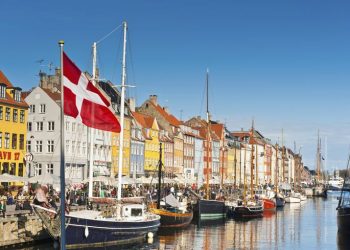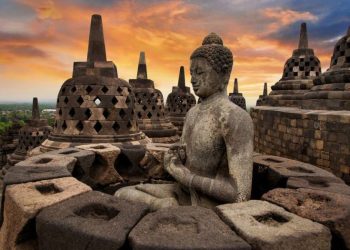Jakarta, Indonesia Sentinel — Ngabuburit is a cherished tradition in Indonesia during the holy month of Ramadan, where people engage in various activities to pass the time before breaking their fast. It has become an integral part of Indonesian culture, evolving over generations.
According to Ayo Bandung, the term ngabuburit originates from the Sundanese phrase ‘ngalantung ngadagoan burit’, which translates to “leisurely waiting for the evening.” While it began as a regional expression, it is now widely used across Indonesia and has become synonymous with Ramadan festivities.
Historically, ngabuburit was a simple yet meaningful way to spend the hours leading up to Maghrib, the evening prayer marking the time for breaking fast. Over time, it has transformed to include a wide range of activities, reflecting modern trends and local customs.
A Time to Ease Hunger and Build Community
At its core, ngabuburit serves as a distraction from hunger and thirst, making the fasting hours feel shorter. However, in different regions in Indonesia, the tradition takes on unique forms.
In Yogyakarta, people often stroll through Malioboro Street, while in Jakarta, popular ngabuburit spots include Monas and Kota Tua, where crowds gather to enjoy the vibrant evening atmosphere.
Many choose to spend this time outdoors, relaxing in city parks, public squares, or scenic locations. A leisurely walk as the sun sets is a favored way to unwind, especially in areas with picturesque landscapes.
For those who prefer staying at home, ngabuburit can be a quiet and personal experience. Some spend their time reading, watching movies, or preparing iftar meals with family.
There’s also many who engage in religious activities such as tadarus (reciting the Quran), attending Islamic lectures, or participating in prayer gatherings. In Aceh, for example, ngabuburit often involves communal Quran recitations at mosques.
The Thrill of Hunting for Takjil
One of the most popular ngabuburit activities is searching for takjil, traditional snacks and drinks enjoyed for breaking the fast. Across Indonesia, bustling Ramadan food markets spring up, offering a variety of delicacies. Vendors line the streets, selling Ramadan favorites such as kolak (sweet banana and coconut milk dessert), es cendol (pandan-flavored iced drink), and various fried snacks, drawing large crowds just before sunset.
Read Also:
Ramadan Approaches, Here are Some Unique Traditions of Muslims in Indonesia!
More Than Just a Pastime
Beyond personal enjoyment, ngabuburit also fosters a sense of community. Many social groups and charities use this time to distribute free meals to the underprivileged or organize fundraising events, reinforcing the spirit of giving during Ramadan.
Ngabuburit is more than a way to pass the time, it is a cultural phenomenon that strengthens social bonds and celebrates Indonesia’s rich traditions. Each region adds its unique flavor to the experience, making it a vital part of the country’s Ramadan identity.
Whether spent in quiet reflection, joyful gatherings, or charitable acts, ngabuburit embodies the warmth and togetherness that define the holy month.
(Raidi/Agung)
























